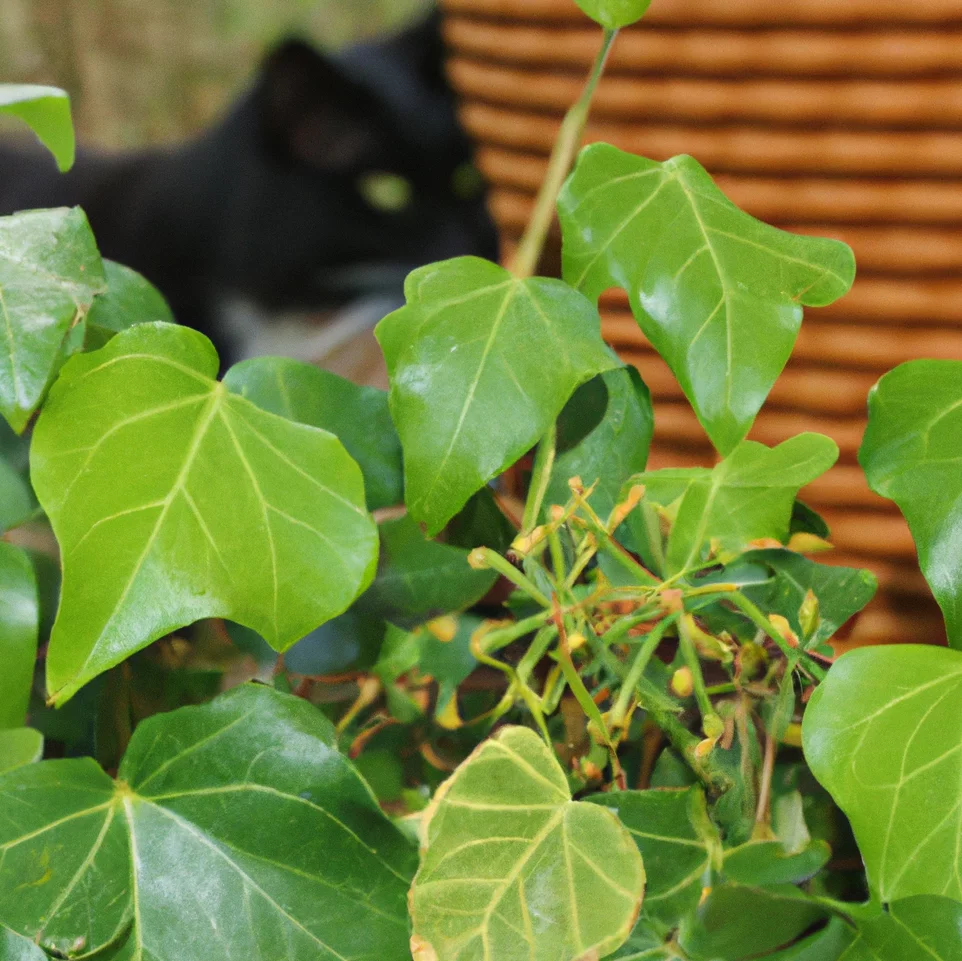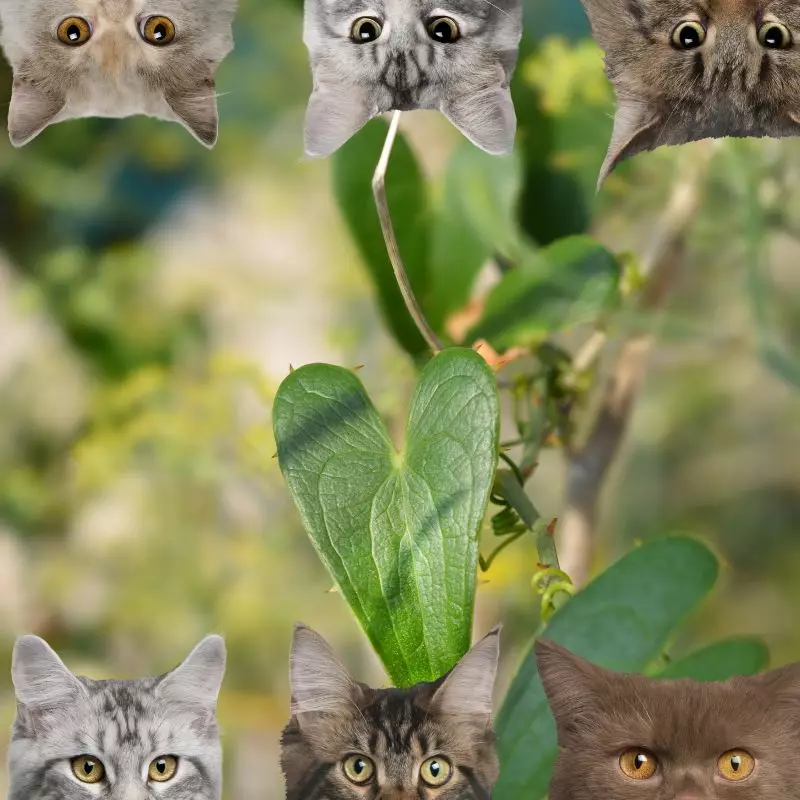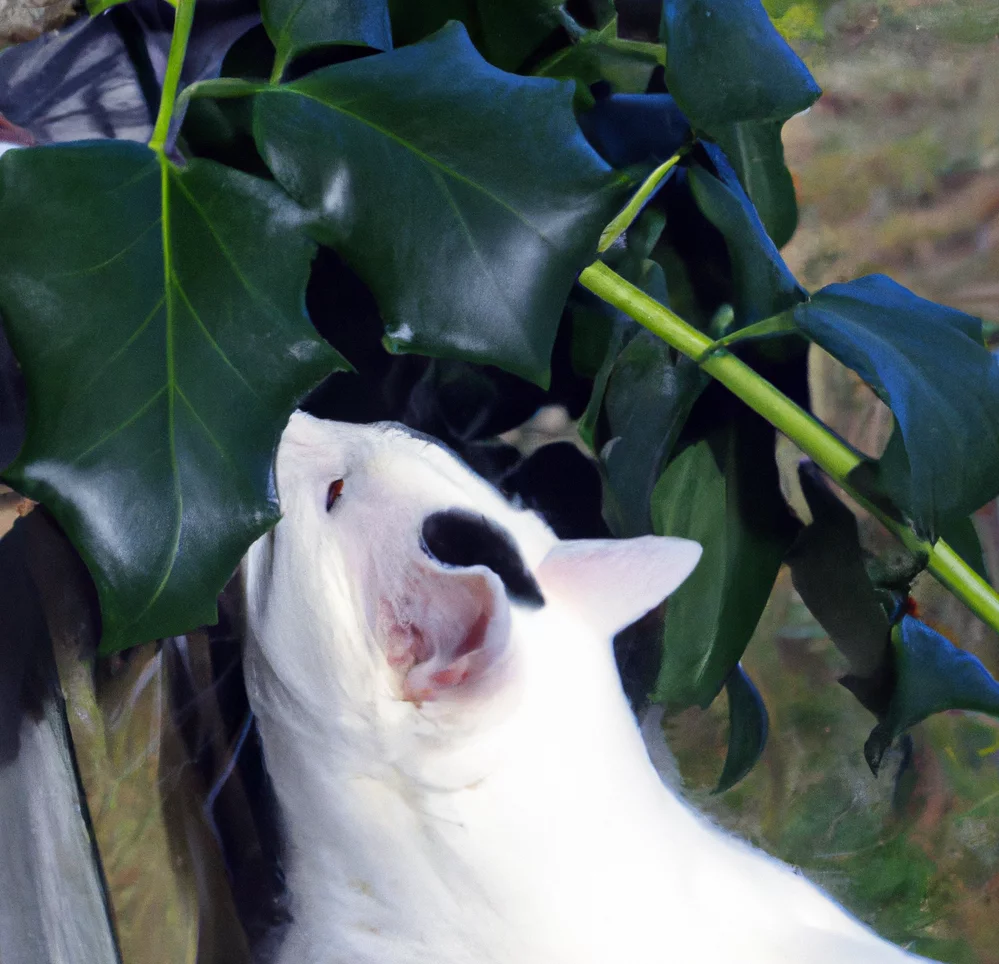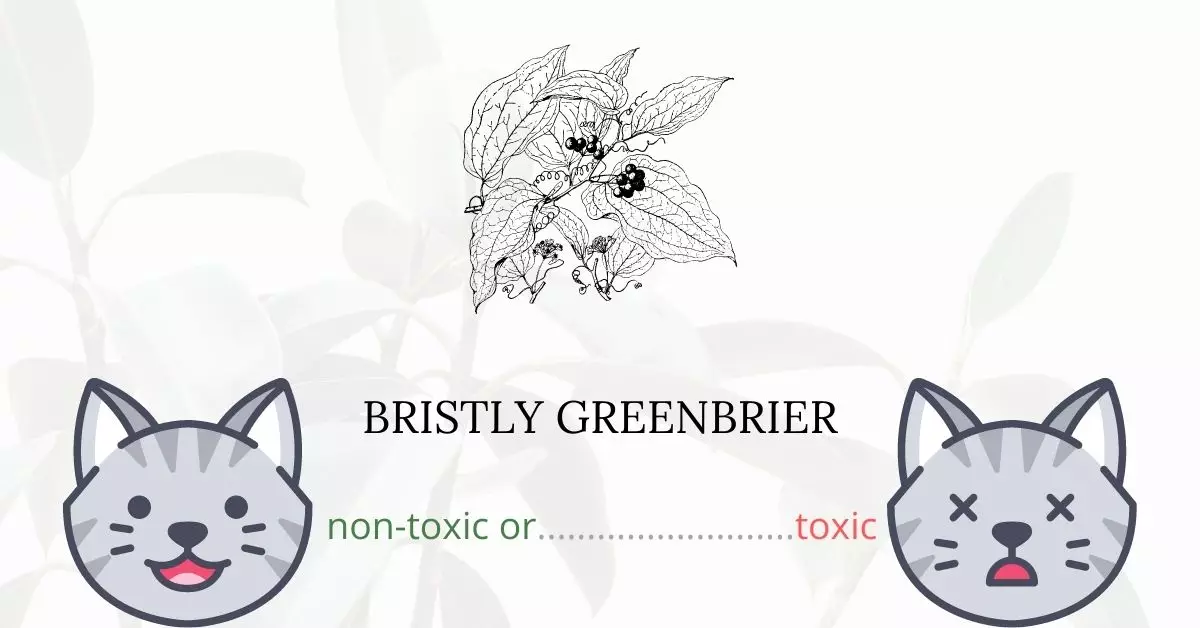Bristly Greenbrier is deemed non-toxic for cats.
In a collaborative effort with a team of experienced DVMs (doctors of veterinary medicine), we have exhaustively researched and assessed the potential risks associated with various plants, including the Bristly Greenbrier, and their effects on cats. Our insights are further supported by high-authority websites such as ASPCA and PetMD.
It is reassuring for cat owners to know that according to the ASPCA Poison Control Center, Bristly Greenbrier is also considered non-toxic for dogs and horses. If you have Bristly Greenbriers at home, there is no cause for alarm.
Can Cats Eat Bristly Greenbrier?

You shouldn’t be concerned if your cat just ate a little amount of bristly greenbrier. It is natural for cats to nibble and chew on objects they find intriguing.
However, you should exercise caution and not allow your pet to consume too many plants. This applies to any plant, not only bristly greenbrier.
Cats’ bodies cannot digest bristly greenbriers properly because they do not have the needed enzymes. If they consume excessive amounts of plant material, it may cause them to feel sick and experience vomiting and diarrhea.
What is Bristly Greenbrier?

Bristly greenbrier is also known for its other common names such as Hagbrier and Hellfetter. It is scientifically known as Smilax hispida and is a member of the Smilacaceae or greenbrier family. The plant is endemic to North America, specifically in portions of the United States and Canada. This woody plant grows in a vine-like fashion, with one leaf per node along the stem. It has a basic leaf blade that is 50 to 130 mm long and 30 to 100 mm broad.
Small animals and birds benefit from the deep shelter provided by greenbrier thickets. Young leaves, branches, and tendrils are edible and make great salad ingredients. It was formerly known scientifically as Smilax tamnoides var hispida.
Keeping Cats Away From Bristly Greenbrier

There are different methods you can try to keep your cats from getting near your bristly greenbrier and other plants at home.
You can try spraying natural deterrents, like vinegar, on your plants. Cats are not fond of the sour odor of vinegar. Another trick to try is using items that cats detest, such as aluminum foil and sticky tape. These materials will keep them away from your plants.
Wrap the foil over your potted plants or lay it over your garden soil near your plants to keep your feline friends away from them. Wrapping your plant pots with double-sided adhesive tape can also keep them from damaging the plants.
Plants to Avoid For Your Cats
If you are a cat owner and unsure if the plants growing in your yard are harmful to your cats, check out this list of toxic plants for cats. You can also check our list of non-toxic plants for cats.





